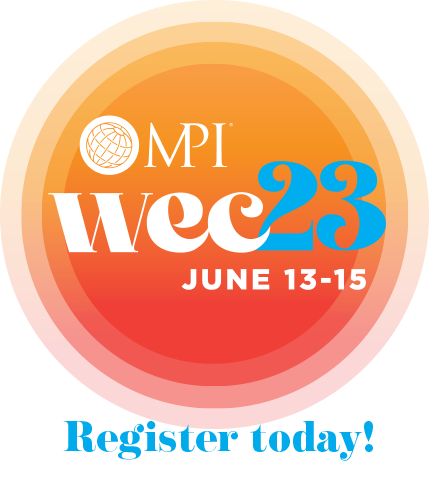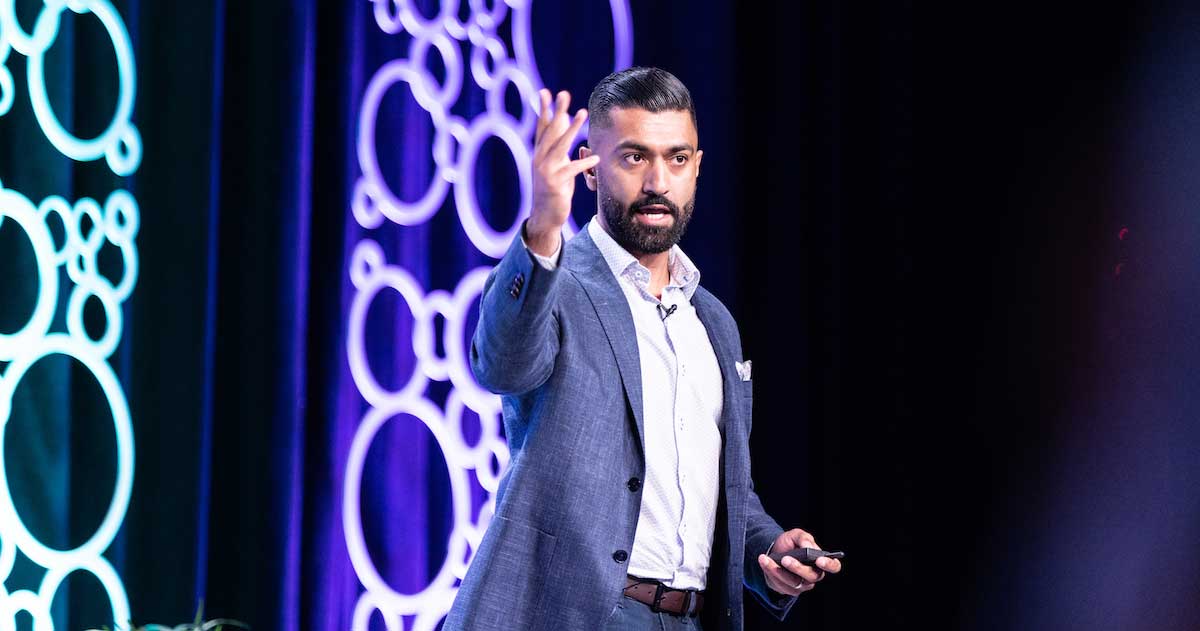Hamza Khan, a keynote speaker at MPI’s World Education Congress (WEC) in June, believes that leaders must unlearn lessons from outdated management playbooks and embrace a “people first” approach to leadership—one that places employee engagement and well-being before profits. They must do so with the complete trust that when they take care of their employees, their employees will take care of their customers. It’s ultimately well-cared-for customers who take care of profits.
The modern workplace, though, isn’t working for most people. According to Gallup’s recent “State of the Global Workplace” report, workers are experiencing staggering rates of disengagement, dissatisfaction and unhappiness.

Sixty percent of workers report being emotionally detached at work, and 19 percent say they’re downright miserable. Only a third of employees report feeling engaged.
“Given my research and work within the fields of burnout and workplace well-being, I can see the myriad of ways in which this widespread disengagement creates losses across the board,” Khan says. “For organizations, among other things, it results in higher turnover, diminished productivity, increased counterproductive workplace behavior and ultimately the acceleration of organizational failure.”
There are more dire consequences, though, for individuals. Disengagement results in diminished mental, physical and emotional health, Khan says, and worse: illness, injury or fatality.
Nurture soft skills
Khan’s keynote address at WEC (June 13-15 in the Mexican Caribbean), “Human 9000: Navigating the Future of Work with Attunement, Resilience and Creativity,” will ask how humans fit in tomorrow’s workplace and how leaders can help them thrive. For Khan, one way to succeed in an increasingly automated workplace is to lean into human qualities that are next to impossible to automate, such as soft skills.
“For all professionals, I’d advocate nurturing the soft skills of attunement (the ability to recognize shifts on the inside and outside of organizations), resilience (the ability to adapt to and withstand stress) and creativity (the ability to envision connections between seemingly disparate data points),” he says.

For leaders, Khan suggests nurturing the values of servitude (putting the needs of subordinates before one’s own), innovation (the ability to disrupt the status quo proactively and constructively), diversity (the power to unlock a full spectrum of human potential) and empathy (the ability to align with another’s circumstances).
“And for people seeking to go the distance with their soft skills development, I’d recommend the following future-proof array: transparency (the ability to communicate clearly and honestly), openness (the ability to receive new ideas and information), understanding (the ability to comprehend information with the intent to harmonize environments), compassion (the ability to have a genuine concern for others) and humility (the ability to know one’s limitations),” he says.
“Learn, unlearn and relearn”
Khan is the co-founder of SkillsCamp, a soft skills training company, as well as a marketer, bestselling author and educator, currently teaching at Seneca College and Ryerson University in Canada.
He ranks his decision to work in post-secondary education as one of the best decisions he’s made in his life.
“At first, it seemed counterintuitive, given the expectations placed on me by mentors, recruiters and counselors,” Khan says. “The pay needed to be higher, the brand names needed to be more prestigious and the workstyle flexibility needed to be improved. However, what the industry lacked at the time in appeal, it more than made up for with growth, learning and happiness—the three most essential ingredients of a fulfilling career.”
“To paraphrase futurist Alvin Toffler, the future is friendly to those who can ‘learn, unlearn and relearn.’”
His varied experiences across several educational institutions and education-focused companies in many roles—as a communications professional, leader, intrapreneur, entrepreneur, professor, graduate student and visiting scholar—gave him a lifetime of insights and a genuine desire to be a lifelong learner.
“Doing so has allowed me to envision the future and to change before change is required,” Khan says. “To paraphrase futurist Alvin Toffler, the future is friendly to those who can ‘learn, unlearn and relearn.’”
Putting people first
One thing that employers and employers can learn or relearn is that change can be good. But avoiding change is something that humans often excel at to their own demise.
“A small but significant driver of employee disengagement and the resultant turnover it continues to cause is destructive leadership,” Khan says. “These leaders tend to put their needs and the needs of their organizations before those of the people who power them. And in maximizing value for themselves, they accept, neglect and provoke disutility in others.”
He says these leaders tend to exhibit what’s known as “The Dark Triad” of personality traits: subclinical levels of narcissism, Machiavellianism and psychopathy. In reality, it’s a small but significant number of genuinely “bad” actors driving disengagement.
Zooming out, Khan says, the more common driver among well-intentioned leaders appears to be active inertia—the tendency to repeat established behavior patterns, even in response to dramatic environmental shifts.
“In other words, it’s avoidance of changing circumstances paired with doubling down on what has worked in the past,” he says. “This is understandable, given our hardwired aversion to change. Humans are generally afraid of the unknown, for it has been associated with loss throughout our evolution. And to keep this loss at bay, we tend to stick to what’s familiar.”
“Nobody knows better than front-line employees themselves the obstacles to doing their best work.”
But in a rapidly shifting world, staying the same will worsen present circumstances.
“Chaos is hungry for failing organizations,” Khan says. “And it thrives when leaders are avoidant and change-averse. But the responsibility for curtailing this seeming epidemic of disengagement doesn’t rest on the shoulders of positional leaders alone.”
He says employees now need to demonstrate personal leadership more than ever and boldly advocate for themselves in their workplaces.
“Nobody knows better than front-line employees themselves the obstacles to doing their best work,” Khan says. “And so to leaders, I’d say this: Put your people first and strive to remove the barriers from their path. And to employees, I’d say this: Overcommunicate with your employer—let them know what you need in order to do your best work.”
For Khan, the last couple of years through the pandemic have left him optimistically reassured that the solution to enhancing our systems is simple and attainable.
“It’s a re-centering of all system decision-making around the needs of people and the planet, not the other way around,” he says. “That’s why I’m in a rush to rehumanize as many workplaces as possible—with enough thriving people-first organizations, humanity can better attempt to transcend poverty, ignorance and vulnerability.”
In partnership with: Speakers Spotlight.
Images courtesy Hamza Khan.



